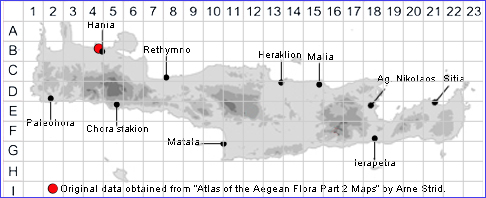
SPECIES DESCRIPTION
EUPHORBIA SERPENS
Family and Genus:- See- EUPHORBIACEAE/ Sect. PARALIAS
Common Names:- Small spurge
Homotypic Synonyms:- Anisophyllum serpens, Chamaesyce serpens.
Meaning:- Euphorbia (L) For Euphorbus, physician to the King of Mauritania.
Serpens (L) Creeping.
General description:- Glabrous annual.
Stems:-
1) Up to 35 cm, rarely perennating, simple or branched from the base, with (0-)4-5
axillary rays.
Leaves:-
1) 10-30(-60) x 1-3 mm, linear to linear-lanceolate, entire.
2) Ray-leaves, elliptic-oblong.
3) Raylet-leaves, deltate-rhombic, obtuse; base cuneate to subcordate.
2) Stipules, often connate.
Flowers:-
1) Rays, 5(-6), up to 5 times dichotomous.
2) Glands, emarginate or with 2, rarely 4, horns.
Fruit:-
1) Capsule, 2·5-3 x 3-3·5 mm, deeply sulcate, granulate-rugulose on the keels.
2) Seeds, 1·5-2 mm, more or less quadrangular, distinctly pitted, pale grey.
Key features:-
1) Raylet-leaves, rhombic-deltate to transversely ovate.
2) Seeds, distinctly pitted.
Habitat:- Irrigated gardens, lawns, roadsides an ruderal habitats. 0-20 m.
Distribution:- Native of America, and occurs frequently as a casual in S. France,
Spain and Greece, where it is perhaps locally naturalized. On Crete a weed of
cultivated and fallow land. Introduced. Probable seiously under recorded.
Flowering time:- June-Sept.
Photos by:- Steve Lenton
